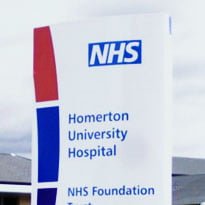Homerton starts £2.7m Cerner enhancement
- 3 November 2014

Homerton University Hospital NHS Foundation Trust has started system testing on a £2.7m enhancement programme for its Cerner Millennium electronic patient record system.
Homerton signed a direct contract extension with Cerner in 2012, after receiving the system as part of the National Programme for IT.
An update on the EPR development programme in the trust’s September board papers outlined its plans to “significantly enhance the clinical functionality” available in the EPR as part of a £2.7m business case.
The update says the aim of the programme is “to provide a clinically-led optimisation of our hospital record patient solution”, including increased functionality.
“It will improve patient experience through empowered clinical decision making, increased efficiency, and the innovative use of technology.”
Among the enhancements will be an electronic prescribing solution, real-time recording and bed management, localised and improved clinical documentation, real-time vital signs data input into patient charts, and improved clinical views of patient information.
Niall Canavan, the trust’s director of IT and systems, told EHI the trust is working on the EPR improvements as part of a push towards becoming paperless.
“At the moment we’ve got reams of paper and paper notes, and we want to make all our notes electronic.
“Although we’ve got an EPR, it’s effectively just an administration system with some diagnostic stuff – most of the doctor and nursing stuff is still done on paper.”
Canavan said an e-prescribing system will be a “huge bonus” for the trust and improve data quality while providing automatic allergy alerts to improve patient safety.
Providing electronic documentation for nurses and therapists, such as care plans and pathways, will also be of value to the trust, he said.
Canavan said the vital signs solution will allow nurses to feed real-time data from the equipment directly into the patient’s electronic chart via the trust network, eliminating the need for manual recording and reducing the risk of errors.
The trust is also working on algorithms for alerts and triggers to be built into the system, with a particular focus on sepsis.
Canavan said the trust wants to improve the way data from its systems are presented to staff, with plans to develop real-time electronic whiteboard functionality that can change depending on the time of day and a person’s job role.
“Once we get all the information, how do we present that back in a way that’s useful? A therapist’s view is different from a doctor’s view, so we want to tailor whiteboards to fit different job roles.”
Canavan said the trust has completed system validation, with “reams and reams of testing” about to begin, including integration testing with pathology and radiology departments.
The trust is now working on its training plan and preparing for a go-live date of 1 June 2015.
Homerton was one of the first trusts in the UK to deploy Millennium when it negotiated an initial contract with Cerner in 2003.
However, when the National Programme for IT in the NHS was launched, the contract arrangements were altered to include BT as local service provider.




